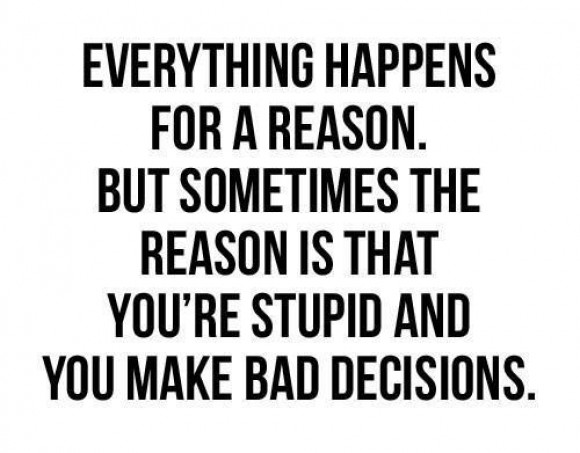 Here are twelve mistakes that contribute to poor decision making.
Here are twelve mistakes that contribute to poor decision making.
- Selective Search for Evidence: Gathering facts that support pre-determined conclusions, but disregard other facts that support different conclusions.
- Premature Termination of Search for Evidence: Accepting the first alternative that looks like it might work.
- Inertia: Being unwilling to change old thought patterns.
- Selective Perception: Prematurely screening out information not assumed to be useful.
- Wishful Thinking: Wanting to see things in a positive light.
- Recency Effect: Putting undue attention on recent information and experience while minimizing the value of information collected in the past.
- Repetition Bias: Believing what’s been stated the most often and by the greatest number of sources.
- Anchoring and Adjustment: Being unduly influenced by initial information that shapes your view of subsequent information.
- Group Think: Conforming to peer pressure or the opinions of the majority.
- Source Credibility: Rejecting input from sources prematurely judged to not be credible (or not “cool” or “in sync with the way you do business.”)
- Attribution Asymmetry: Attributing success to your team’s abilities and talents, but attributing failures to bad luck and external factors.
- Role Fulfillment: Conforming to the decision making expectations others have of someone in your position.


The methodology added to Russell’s initial takeoff from the top employment. Brigadier General Matthew Broderick, head of the Homeland Security Operations Center, who was in charge of alarming President Bush and other senior government authorities if Hurricane Katrina broke the levees in New Orleans, went home on Monday, August 29, 2005, in the wake of announcing that they were by all accounts holding, regardless of different reports of ruptures.